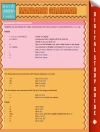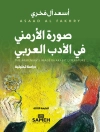Haitian Creole (HC) is spoken by approximately 11, 000, 000 persons in Haiti and in diaspora communities in the United States and throughout the Caribbean. Thus, it is of great utility to Anglophone professionals engaged in various activities—medical, social, educational, welfare— in these regions. As the most widely spoken and best described creole language, a knowledge of its vocabulary is of interest and utility to scholars in a variety of disciplines.
The English-Haitian Creole Bilingual Dictionary (EHCBD) aims to assist anglophone users in constructing written and oral discourse in HC; it also will aid HC speakers to translate from English to their language. As the most elaborate and extensive linguistic tool available, it contains about 30 000 individual entries, many of which have multiple senses and include subentries, multiword phrases or idioms. The distinguishing feature of the EHCBD is the inclusion of translated sentence-length illustrative examples that provide important information on usage.
Over de auteur
Albert Valdman is an Emeritus Rudy Professor of French/Italian and Linguistics, director of the Indiana University Creole Institute, and a leading international specialist in French-based Creole. He has written and/or edited numerous other books and manuals that focus on language.
Marvin D. Moody is a former member of the French Linguistics faculty in the Department of French and Italian at Indiana University, where he also directed the First Year French Program.
He has also worked as a software engineer and has taught computer science courses at universities and junior colleges.
Thomas E. Davies has lived and worked in the Haitian diaspora in Florida and Montreal for more than thirty years. He was the lead translator of Haitian Creole for the Florida, Fort Myers School District from 2004 to 2011. The author of a spell checker for Haitian Creole, he is completing a Ph.D. in curriculum studies at Indiana University.












